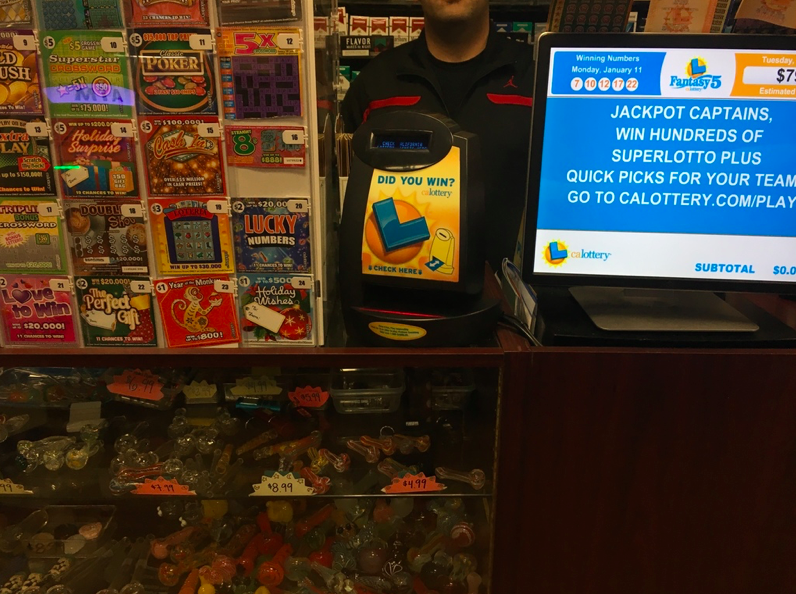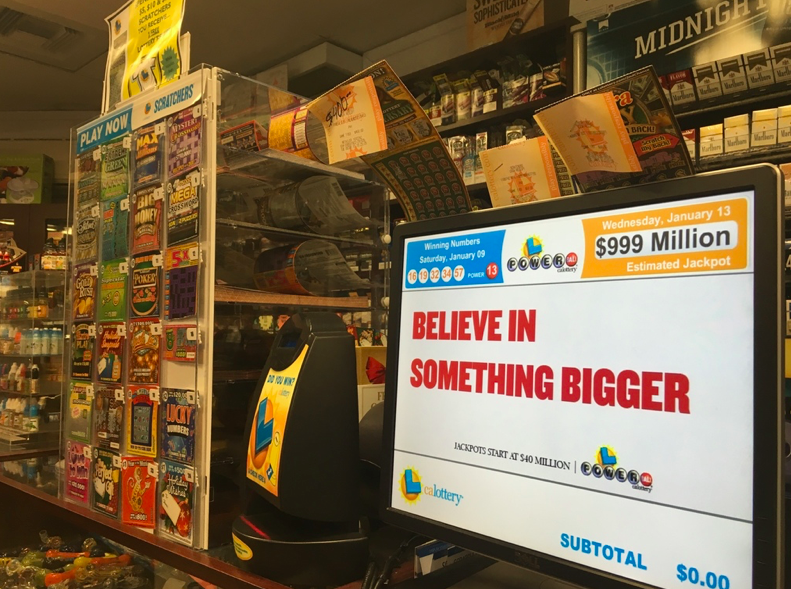I'm Addicted to Gambling, but I Sell Lotto Tickets for a Living

By:
Tony* works at a convenience store on Sunset Boulevard in West Los Angeles selling cigarettes and lottery tickets. A lot of new faces have walked in recently, asking about the Powerball jackpot. People who rarely (if ever) gamble come in and buy the $2 tickets in hopes that their six numbers match to win the record $1.5 billion jackpot. Tony wants to tell them to walk away and save their money.
RELATED: What You Need To Know About the Lottery
About two weeks ago, Tony bought a few $5 and $1 scratchers — the lottery tickets you scratch to play — and ended up winning almost $500. But the next day, he felt compelled to double-down, to spend his winnings on more scratchers. By the end of the day, he had scratched the silver paint off at least 60 $20 and $30 tickets and found himself out $700. By the end of the week, his total losses amounted to about $2,100. He showed me the stack of losing tickets, still in disbelief.

Drug addiction and gambling addiction are one in the same. While the chemical dependence of drug addiction is more easily measurable, the psychological dependence of gambling rewires the brain in much the same way. It makes you seek rewarding experiences in spite of the apparent risks. It can make you buy hundreds of lotto tickets or scratchers even when you're down and out. Addiction is never rational.
I met Tony at the convenience store he works at to ask him about his compulsive gambling.
ATTN: How many people come in to your store to buy lotto tickets?
Tony: Since it's up to 1.3 billion, a lot. I'd say more than 50 people a day.
ATTN: What do you think when you see them come in for lotto tickets?
Tony: Waste of their money. I've purchased a lot of tickets; I even purchased by the stacks — and I never won anything. So that just says, you're always a loser when playing. It's just dumping out money.
ATTN: How does working at a shop that sells lotto tickets affect you?
Tony: I'm not going to lie, it is very tempting, and that's one of the reasons that I'm going to leave this job. Even though I believe in myself that I'm not going to gamble anymore, but I'm here probably nine, 10 hours a day, bored out of my mind, nothing to do, that's one option that I go to because of boredom.
ATTN: How often do you go to Las Vegas to gamble?
Tony: In a year, probably 20 times, which is a lot.
ATTN: What's the most you lost in Vegas?
Tony: $60,000. Two years ago. It was out of my savings. I thought I had a problem, but then I just figured I had a bad week, so I just left it alone.

ATTN: What does gambling addiction mean to you?
Tony: Gambling addiction, to me, when I know I have an addiction is when I spend more money than I should.
ATTN: What did you do when you realized you might have a gambling problem?
Tony: I went on YouTube, I looked at gambling addiction videos, and whatever they said was pretty much what I was going through. I'm not like in depression. I didn't lose that much money. But l felt bad and felt like it's a waste of my time and money.
ATTN: What were you thinking when you scratched off the last losing ticket the day after you won $500?
Tony: This is bullshit. This is bullshit. I can't lie, I blamed myself for playing that many scratchers again after seeing how much I lost the first time playing the same amount, but I don't blame the system. The system is too smart. You can only blame yourself for playing it.
ATTN: What's kept you coming back to gambling?
Tony: The thrill of winning. You get a good feeling when you win.
ATTN: What advice would you offer to someone who gambles?
Tony: The only advice I could give to someone who gambles is don't gamble. It's just a waste of your time and your money. There's better stuff you can waste your money on if you want to waste money.
The science of gambling addiction.
The National Council on Problem Gambling estimates that about 9 million Americans have serious problems with gambling — and about a third of those cases qualify as pathological gambling.
Just as drug addicts find ways to justify their use, compulsive gamblers can trick their minds into thinking that their behavior is rational. And over time, they build tolerances to the "highs" of gambling (i.e. wins). Their ability to assess risk and suppress instincts is compromised. The reward system of their brain seizes control.
RELATED: John Oliver on the Lottery: The Odds Will Never Be In Your Favor
"Unfortunately, researchers estimate that more than 80 percent of gambling addicts never seek treatment in the first place," Scientific American reported. "And of those who do, up to 75 percent return to the gaming halls, making prevention all the more important."
*Tony's name has been changed.

